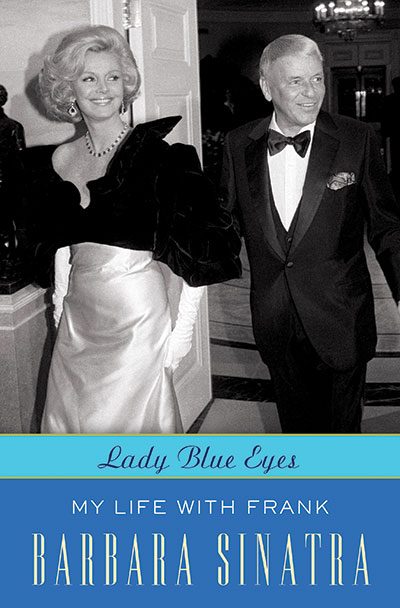
In her new memoir, Lady Blue Eyes: My Life With Frank Sinatra (Crown Archetype), Barbara Sinatra, now 84, recounts her 22-year marriage to the Chairman of the Board, which lasted until his death in 1998. The book traces the mostly glam experiences of the blond beauty herself—her rise from humble beginnings in Bosworth, Missouri, and her marriage to Zeppo Marx, which ended after a week on the French Riviera with Sinatra. But in a chapter called “Come Rain or Come Shine” (each chapter is named for a Sinatra song), Barbara recounts a trip she took with Frank when they were newlyweds. The singer had his heart—which was “as big as New Jersey,” Barbara writes—set on showing his bride his hometown, Hoboken. Barbara talked with New Jersey Monthly from her home in Los Angeles.
When you and your husband visited Hoboken in the 1970s, you were accustomed to traveling to some of the world’s most glamorous places. How game were you to visit New Jersey?
Oh, I was very interested. I had taken him to Bosworth, and I wanted to see where he came from. He was very excited about us being there.
What did he show you?
He took me to the places he had lived. One was an apartment building, one had been torn down. One of my favorite stories from that trip was the Hoboken jail, which we also went to. One night before [Frank] was a singer, Bing Crosby landed in that jail. Evidently, Bing had drank too much and got thrown in. Frank had always loved Bing Crosby, and he wanted to be a singer, so he got down at street level, to a space on the sidewalk where you could look through the window at the person in jail. He was going to ask Bing for advice or something, but Bing was drunk and yelled at him—he chased him away.
In the same chapter, you write of your husband: “Frank had gotten out of Hoboken. His legacy was the hope for those he left behind that they might escape too.” Do you mean that his memories of Hoboken weren’t particularly fond?
I know he was beaten up a lot as a kid. He was always very skinny and very frail. And he had to work very hard on improving his diction and speech. He was a perfectionist about it. Anyone who hears his records can hear it.
You also remember your husband saying of Hoboken, “When I was there I just wanted to get the hell out. It took me a long time to realize how much of it I took with me.” What would you say he took with him?
His love of singing. He brought that with him everywhere. It was where he started the Hoboken Four [an early group], and they won the Major Bowes Amateur Hour.
There’s a lot about Frank’s mother, Dolly, in the book, including your early relationship with her, which was rocky.
She was a dramatic person. And very tough. She knocked Frank around a lot. But she was a great cook—she was always cooking Italian food—and he was very devoted to her.
Another New Jersey-related story in the book happens during a trip to Egypt. You and your husband were riding a camel, the handler lost control, and the camel took off with you on its back.
That was really funny. What happened was, Frank was screaming every four-letter word he knew at the guy, an Arab, and then all of a sudden [the handler] throws off his headpiece and says, “Look, I’m from New Jersey.”
You once gave a dinner party for your husband’s birthday, attended by Bruce Springsteen and Bob Dylan. Did Frank have a relationship with Springsteen?
They had long conversations at that party…there was a kinship there.
How did Frank feel about performing in New Jersey in his later years? Did he relate to the home-state crowd on some level?
Always. He always let it be known that he was from New Jersey.
Did that make it special for the crowd?
They loved it, the idea that he was there in his element. He lived in a lot of places, but Hoboken and all of New Jersey were always very close to his heart.



